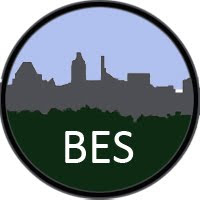Emma Rosi-Marshall Becomes Sole Director of BES
Dr. Emma Rosi-Marshall has been co-directing BES with me since 2013. That year, BES was reviewed by a visiting committee, and the results of that event helped us to shape […]
This author has not written his bio yet.
But we are proud to say that John Lagrosa contributed 130 entries already.
Dr. Emma Rosi-Marshall has been co-directing BES with me since 2013. That year, BES was reviewed by a visiting committee, and the results of that event helped us to shape […]
By Steward T.A. Pickett (Cary Institute) & Mary L. Cadenasso (University of California Davis) In 2008, we published a short paper on the principles of urban ecology (Cadenasso and Pickett […]
The meeting takes place in Ft. Lauderdale, Florida, from 7-12 August. The meeting theme is Novel Ecosystems in the Anthropocene. Certainly this theme is right in our urban niche! Details […]
Every year, about this time, the Baltimore Ecosystem Study hosts its Community Awareness and Field Safety training. We expect that every new participant in BES, whether student or senior professor, […]
Preparing for transitions in leadership in Long-Term Ecological Research projects is a big job. The Baltimore Ecosystem Study (BES) has been preparing for its leadership succession since 2013. Emma agreed […]
Urban ecology talks and papers often begin with statements like these: More than half the world’s human population now lives in cities. Urban areas in the United States cover 3% […]
Much that happens in cities — urban areas more broadly — is not obvious to the naked eye or to casual observation. The invisible things in urban social-ecological systems represent […]
I had the pleasure of contributing to a field trip of visiting landscape architecture students and their professor recently. Getting out in the neighborhoods and habitats in Baltimore is always […]
Encountering Zev Naveh – A force of nature One answer to the question of where urban ecology came from has to point to Zev Naveh. When I first heard Zev […]
We are extraordinarily fortunate in Baltimore to have long-term support for our urban social-ecological research and engagement. BES is funded in 6 year increments, subject to review and approval by […]
This research was supported by funding from the NSF Long-term Ecological Research (LTER) Program. This material is based upon work supported by the National Science Foundation under Grant Nos. DEB-1637661 and DEB-1855277. Any opinions, findings, and conclusions or recommendations expressed in this material are those of the author(s) and do not necessarily reflect the views of the National Science Foundation.
The Baltimore Ecosystem Study has been a National Science Foundation Long Term Ecological Research (LTER) site since 1998. Visit other LTER sites.
 |
 |
